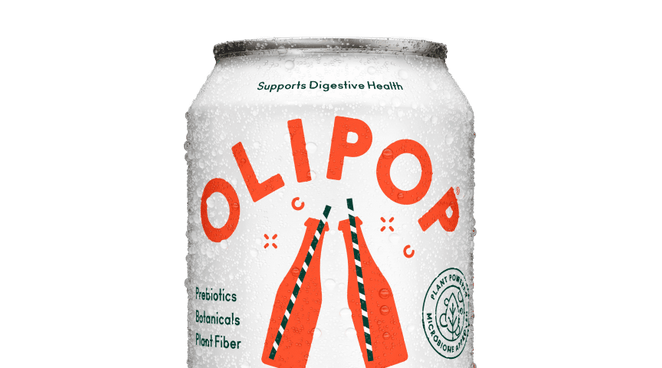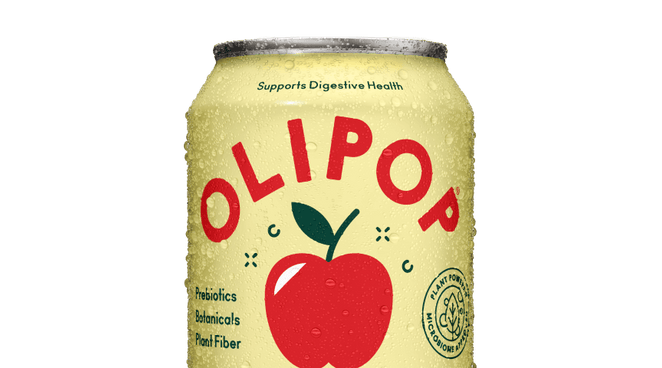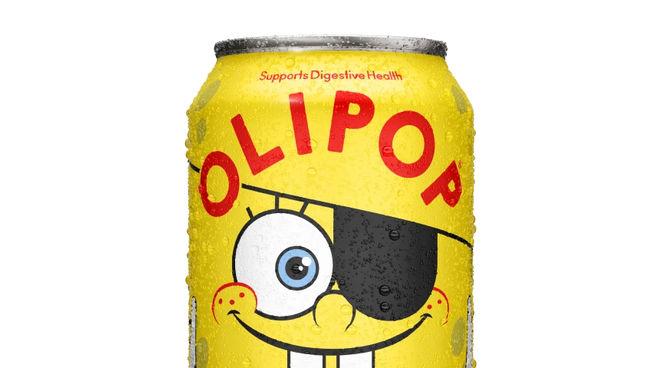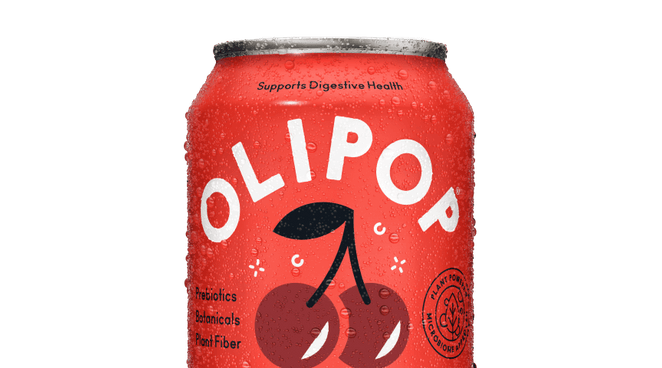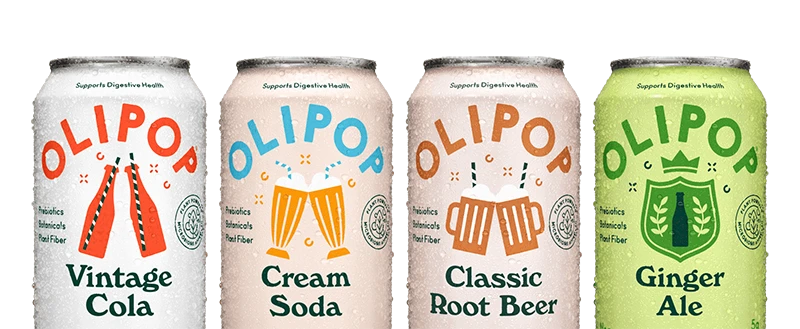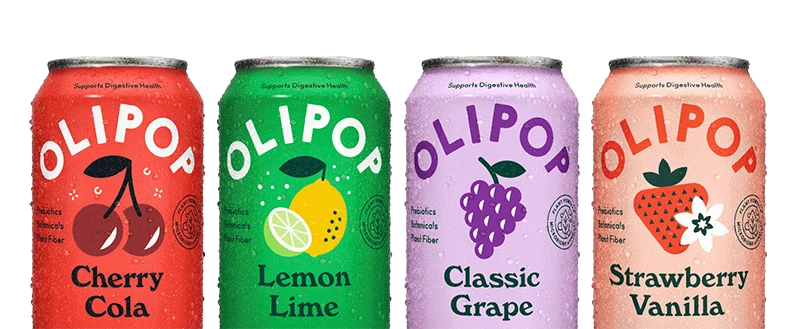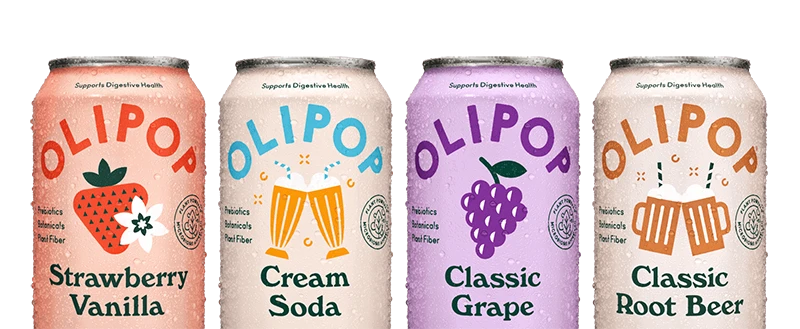Editor's Note: This article is reviewed by Lauren Manaker MS, RDN, LD, a registered dietitian and a paid contributor to OLIPOP. She specializes in digestive health and reviews OLIPOP content for scientific accuracy.
We all know excess sugar isn't great for us, but how many of us can resist a sweet, delicious treat from time to time? We’re going to go ahead and say, very very few. Even if you aren't a true sugar junkie, reducing sugar from your diet can be difficult. Especially if you don't have an equally delicious alternative.
As the world becomes more and more health-conscious, we've seen a boom in the diversity and availability of alternative sweeteners. From chemical-based sweeteners like aspartame and sucralose to the popular plant-based sweetener stevia, sugar substitutes are widely used to replace sugar in both food and drink products.
But are sugar substitutes like stevia good alternatives? And why are they better than sugar? Let's dive in to learn more.
Sugar vs. Sugar Substitutes
Sugar isn't necessarily the enemy. After all, it's an ingredient naturally present in foods like fruit and milk. But these naturally occurring sugars are not the problem.
Added sugars are the real issue. Added sugars are, as the name implies, not natural but rather added to foods in sickening amounts. All this added sugar poses a threat to our health. This is thanks to its association with many serious diseases, including heart disease, diabetes, and cancer. [1]
Additionally, sugar has zero notable health benefits. So unless you can burn off the sugar you intake with exercise, it ends up stored in your body as fat. Not great, right?
*Sugar substitutes enter the chat*
And this is where sugar substitutes come in. Sugar substitutes are food additives used to sweeten foods and drinks while reducing your intake of sugar. Most sugar substitutes will be either low-calorie or zero-calorie, such as stevia.
What Is Stevia?
Stevia comes from the leaves of the Stevia Rebaudiana plant (read: plant-based!) and has been used for over 200 years to sweeten foods.
The leaves of the Stevia Rebaudiana plant also have a long historical use in making tea. Although the stevia plant is native to South America, it is now grown worldwide, including areas in North America. [2]
How Sweet Is Stevia?
Like sugar, stevia is plant-sourced. However, stevia is 200-300 times sweeter than sugar, which means you use a lot less to get the same benefit.
How Does Stevia Get Its Sweetness?
Not all parts of the stevia leaf are sweet! The sweetness comes from compounds called steviol glycosides. By removing these compounds from the plant and purifying them, you'll get a sugar-free sweetener.
Stevia vs. Sugar
How does stevia compare to sugar? Great question, glad you asked. Here are two of the main differences between sugar and stevia:
- Stevia is a non-nutritive sweetener: In other words, it doesn't have any calories (or at least it has so little that it's not considered caloric!). Sugar has about 16 calories per teaspoon (4 calories per gram). And all those calories are carbohydrates.
- Stevia doesn't accumulate in the body: Stevia travels straight to your colon where it gets broken down into steviol glucuronide. Eventually, this steviol glucuronide ends up in the kidneys, where it's released as urine. Thus, stevia is never stored in your body. It's the opposite with sugar. As we mentioned, unless you can burn off the sugar you intake with exercise, it will end up stored as fat. [3]
Given what we know about how our bodies process stevia vs sugar, stevia is a good alternative for sweetening your foods and drinks.
What Does Stevia Taste Like?
Most people find stevia exceptionally sweet with a slight aftertaste. But stevia's exact taste depends on you, your genetics, and how your taste buds perceive flavor. [2]
Stevia interacts with the taste buds on your tongue that sense sweet and bitter flavors. Since our tongues have more bitter taste buds than sweet ones, this means that, for some people, stevia may come off as slightly bitter.
Additionally, stevia will have a metallic taste for a tiny portion of the population or even an anise (aka licorice) flavor. Pro tip: if you are a part of this group, using a stevia blend will be a better option than using pure stevia. More on this below.
Is There Really an Aftertaste?
Given up non-nutritive sweeteners because you can't stand the aftertaste? Stevia might be an option for you. Although stevia has an aftertaste, most manufacturers mitigate it by not relying solely on stevia to sweeten their products.
The use of stevia with other sweeteners (like fruit) produces a natural blend that not only sweetens a product but eliminates the aftertaste you might experience from a product sweetened exclusively with stevia. Additionally, it assists in eliminating the metallic or licorice taste some consumers experience.
We know this first hand because OLIPOP combines stevia with real fruit juice to create that perfectly balanced sweetness in each of our delicious flavors!
Stevia’s Chemical Structure
Stevia is available in many forms. Sometimes in pure stevia form, but often as a blend with other sweetening ingredients. For instance, several popular name-brand forms of stevia are a blend of stevia and sugar alcohol, like erythritol.
These forms of stevia come in the form of crystallized granules, liquids, and powders. They can change the taste of stevia and the amount needed to sweeten a food or beverage. The chemical structure of different forms of stevia also dictates how well it will dissolve in food or drink. This can determine which type is best for a particular product.
OLIPOP features a very mild version of stevia, blended with naturally-occurring sugars from fruits and cassava syrup, to deliver a delightful beverage that blends harmoniously with the flavors in our soda.
Why Use Stevia Instead of Regular Sugar?
Stevia is an exceptional sugar alternative for sweetening your foods and beverages because it's zero-calorie and less refined.
The Rise of Processed Sugars
One of the most detrimental factors affecting our health today is the amount of highly processed and refined sugars in our diets. Examples of refined sugars include:
- High fructose corn syrup
- Cane sugar (sucrose)
- Malt syrup
- Rice syrup
- Glucose syrup
With high fructose corn syrup (HFCS) development, manufacturers found a cheap way to sweeten foods and refine flavors. HFCS is easy to manufacture and inexpensive to produce, making it very popular for most American foods and beverages. [3]
The problem with HFCS (and other heavily refined sugars) is how your body processes them. For instance, HFCS presents your body with an unnatural amount of fructose. All this excess fructose gets stored in your body as fat until your body can use it for fuel. [4]
Even worse, in the United States, we each consume close to 40 pounds of fructose each year. [4] It's no wonder we've been battling an obesity epidemic for decades! [5]
Alternative Sweeteners
Thankfully, there has been a rise of alternative sweeteners for use in popular products that provide other options to HFCS and other refined sugars. Among the most popular are stevia, monk fruit, and even natural fruit juices.
OLIPOP uses stevia instead of sugar or HFCS. The typical can of root beer contains 39 grams of sugar, has 39 carbohydrates (no fiber), and packs a whopping 153 empty calories.
OLIPOP's Classic Root Beer, in contrast, contains 2 grams of sugar per can, 3 net carbohydrates (thanks to the 9 grams of healthy fiber), and just 35 calories. It's a much better option when you need a refreshing beverage with a little extra health boost!
Stevia Leaf: The Takeaway
Stevia is an excellent choice if you're looking to cut down on calories, eliminate HFCS from your diet, and enjoy the sweet tastes you love. Stevia is also calorie-free.
As we become more and more informed about how the ingredients in our foods and beverages affect us, it's only natural to become health advocates. By researching and studying the health benefits of OLIPOP, we can make informed decisions and switch to holistic, better-for-us products. It all starts with as small of a step as switching from traditional soda to OLIPOP!
Sources
- Kayla McDonell, “9 Natural Substitutes for Sugar,” Healthline Media, June 4, 2020, https://www.healthline.com/nutrition/natural-sugar-substitutes#1.-Stevia.
- “Stevia Taste Science,” PureCircle Stevia Institute, n.d., https://www.purecirclesteviainstitute.com/healthy-lifestyle/great-taste/stevia-taste-science.
- Stephen D. Anton et al., “Effects of Stevia, Aspartame, and Sucrose on Food Intake, Satiety, and Postprandial Glucose and Insulin Levels,” Appetite 55, no. 1 (August 2010): 37–43, https://doi.org/10.1016/j.appet.2010.03.009.
- Ernst J. Schaefer, Joi A. Gleason, and Michael L. Dansinger, “Dietary Fructose and Glucose Differentially Affect Lipid and Glucose Homeostasis,” The Journal of Nutrition 139, no. 6 (April 29, 2009): 1257S-1262S, https://doi.org/10.3945/jn.108.098186.
- Nia S. Mitchell et al., “Obesity: Overview of an Epidemic,” Psychiatric Clinics of North America 34, no. 4 (December 2011): 717–32, https://doi.org/10.1016/j.psc.2011.08.005.
- Stevia is a non-nutritive sweetener that comes from the leaves of the Stevia Rebaudiana plant and has been used for over 200 years to sweeten foods.
- Stevia is an exceptional sugar substitute for sweetening your foods and beverages because it has zero-calories and is less refined than sugar.
- Thanks to the overabundant use of added sugars in processed foods, sugar substitutes like stevia help limit your sugar intake.


